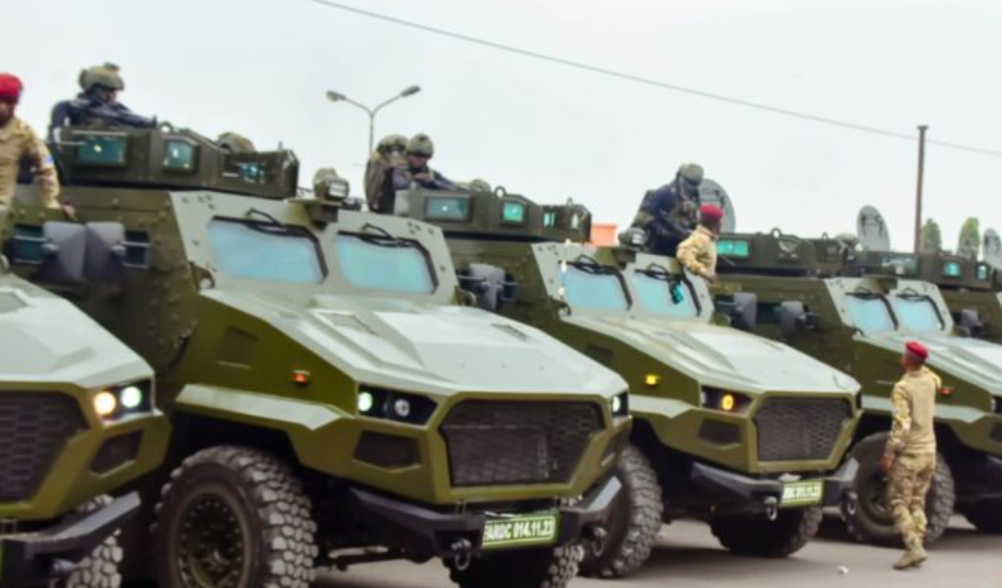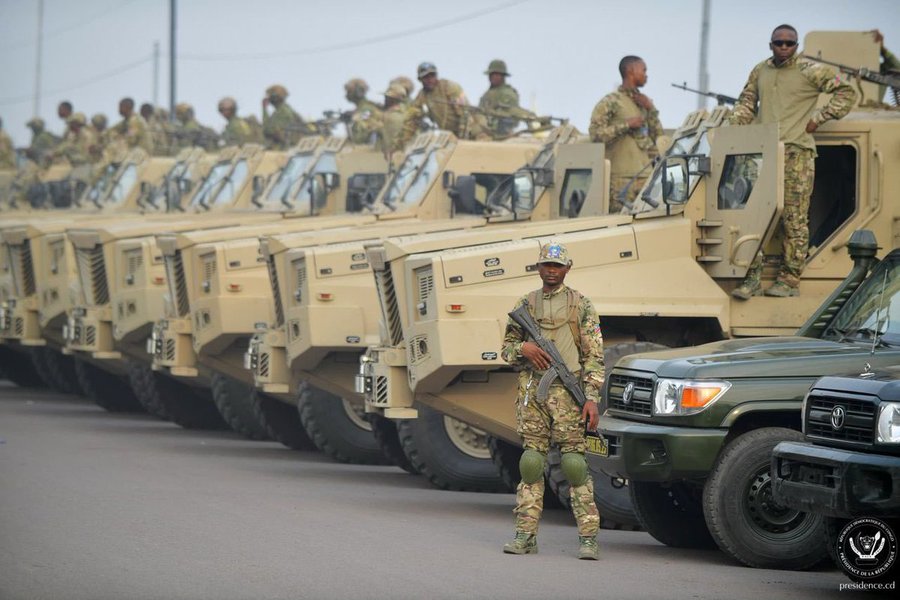
The Democratic Republic of the Congo’s (DRC) military is set to significantly boost its ground capabilities with a large shipment of over 100 armoured vehicles from the United Arab Emirates. (UAE)
- DRC is enhancing its military capabilities with a major acquisition of armored vehicles from the United Arab Emirates.
- The procurement includes approximately 160 Kasser II mine-resistant vehicles designed to address security challenges in the region
- This partnership highlights the UAE’s increasing involvement in African security measures and its ambitions as a military equipment supplier.
More than 100 units of armoured vehicles, sourced from Abu Dhabi-based International Golden Group, are already en route to the DRC, representing one of Kinshasa’s most substantial recent acquisitions of military hardware.
This procurement comes as the Congolese armed forces face persistent security challenges, particularly in the conflict-ridden eastern provinces, where multiple armed groups continue to operate despite years of counterinsurgency efforts.
According to Military Africa, among the vehicles being delivered is the Kasser II, a mine-resistant ambush-protected vehicle (MRAP) engineered to withstand the dangers prevalent in high-risk combat zones like eastern Congo.
Manufactured under the auspices of the International Golden Group in the UAE, the Kasser II is tailored for multirole operations, functioning both as an armoured personnel carrier and as a platform capable of resisting blasts from mines, improvised explosive devices, and small-arms fire.
The Congolese government has reportedly ordered around 160 of these vehicles in a deal valued at approximately $70 million, with some variants outfitted with heavier weaponry, including 20 mm cannons and 12.7 mm machine guns, to enhance battlefield effectiveness.

Initial shipments brought in about 50 units, while subsequent deliveries including a batch of 30 that arrived at the port of Matadi in Kongo-Central province in May 2025, have further bolstered the fleet.
UAE’s controversial role in African military affairs
The UAE, which has been steadily expanding its footprint in African security partnerships, is emerging as a notable supplier of advanced equipment to the DRC.
DRC’s recent arms deal with the United Arab Emirates comes at a time when Abu Dhabi’s military role in Africa is under heightened scrutiny.
While Kinshasa has framed the acquisition as part of its urgent push to modernise the army and secure volatile eastern regions against armed groups, the partnership inevitably inherits the shadow of broader geopolitical controversies surrounding the UAE’s actions elsewhere on the continent.
In Sudan, the UAE has been accused of funnelling weapons and logistical support to the Rapid Support Forces (RSF), the main rival to Sudan’s army in the country’s brutal civil conflict.
Even though Abu Dhabi has denied these claims, evidence cited by the UN of arms shipments through Chad and Libya has fuelled perceptions that the UAE is willing to arm non-state actors when it serves its strategic interests.
This history raises questions about whether the DRC’s deal could be perceived as purely transactional or part of a wider Emirati security strategy in Africa.
Critics warn that while the DRC is seeking legitimate means to strengthen its military, the optics of aligning with a partner accused of backing militias in other conflicts could complicate its diplomatic standing, especially with countries and institutions pushing for stricter oversight of arms flows into conflict zones.
The DRC’s leadership, however, appears to be prioritising immediate defence needs over reputational risk, banking on Abu Dhabi’s willingness to deliver quickly where Western suppliers often move cautiously.
This calculated gamble reflects a growing pattern among African states that see the UAE as a pragmatic, if controversial, military partner capable of providing both equipment and political backing in a fast-changing security environment.












